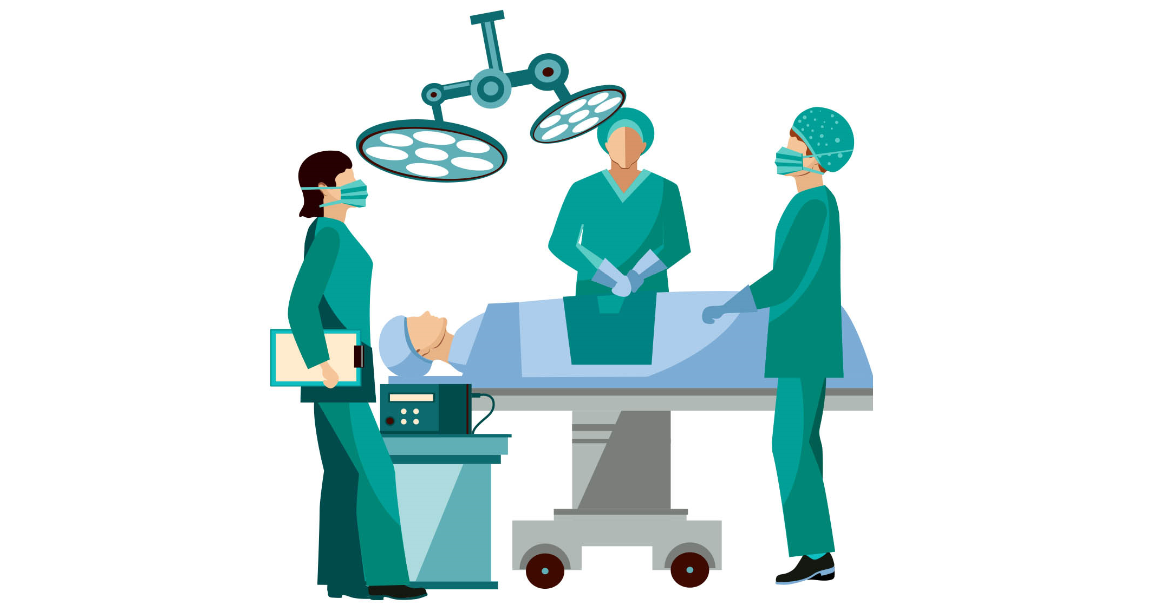While knee replacement surgeries are widely successful, it's still important for patients to prepare for their surgery to achieve the best outcome. Here is an overview of how to prepare for your knee surgery!
View the text alternative of Preparing for Knee Replacement.

Share this Image On Your Site
Getting Started
Preparing for a total knee replacement begins several weeks before the actual surgery.
1. Talk to Your Doctor
Learn about the hospital admission process before preparing for knee replacement surgery. Ask how long you should expect to stay in the hospital. Schedule any preliminary tests, such as blood tests and x-rays, well ahead of your procedure.
- Discuss the hospital admission process with your doctor before surgery.
- Your orthopedic physician may ask you to see a medical doctor, especially if you've had medical problems in the past.
- Report any blisters, cuts, or boils to your doctor.
- Ask your doctor if there are any special considerations, complications, or benefits associated with the new implant. And review your recovery expectations
2. Gather Personal and Medical Information
Assemble your personal and medical information in one place. This will save you time, as many parties will likely ask for your medical history, medication lists, insurance coverage, and other information during your care.
Designate a primary caregiver to be there with you on your day of surgery. This person can help carry your belongings and keep in touch with your friends and family members.
3. Get in Shape
Maintaining good physical health before your operation is important and activities that increase upper body strength will improve your ability to use a walker or crutches after the operation.
- Deep breathing exercises: you should exercise your lungs every day before surgery by inhaling deeply through your nose, then slowly exhaling through your mouth. Repeat this 3 times and then cough 2 times, every 30 minutes. These exercises may help to remove any excess secretions that may settle in your lungs while you are asleep during surgery.
- Ankle pumps: You should pump your ankles back and forth 1,000 times everyday before surgery. This is your best defense against blood clots.
4. Prepare Your Home
You will need crutches and/or a walker and handrails for the stairs leading to your house. You may also want a raised toilet seat and handrails around the toilet, bath areas, and stairwells. Any scatter rugs should be removed and torn areas in the carpet tacked down to prevent falling.
If assistance from someone at home is not possible, please discuss this with your surgeon. It may be necessary to arrange a stay in a skilled care facility, an acute rehab unit, or receive in-home care. To qualify for these options, you must meet certain criteria as directed by Medicare and/or your insurance carrier.
5. Pre-Op Visit
Before your visit to your primary care doctor, you will need to have lab tests done to ensure that you are in good general health. These will be reviewed by your primary care doctor. Tests will be performed such as EKG, blood work, lab tests, chest x-ray, etc. After all of these tests and exams are completed, a nurse will make sure your questions are answered before you leave the appointment.
If at any time you become ill, such as with a cold or flu, you need to call your physician. You need to be in the best of health before surgery.
6. Surgical Checklist
It is strongly recommended that you shower the night before surgery, using soap or body wash to scrub all areas of your body. Nail polish and makeup should be removed.
Unless instructed otherwise, do not eat or drink anything after midnight.
7. Preparing for Your Homecoming
Arrange for someone to drive you home. If you live alone, ask a friend or family member to stay with your for a few days. Stock up on ready-made food or prepare and freeze 1 to 2 week's worth of food.
Ask your doctor for more ideas on what you can do in preparing for knee replacement surgery.
8. Pack for the Hospital
- Crutches or walker
- Good walking shoes (crepe or rubber soles)
- Pair of shorts or sweatpants and a t-shirt
- Pajamas and robe
- Toothbrush, toothpaste, deodorant, and other personal items
- Electric razors
- Up to 2 family members or friends
(You can leave most items in your vehicle)
At the Hospital
You should arrive at the hospital at the instructed time. After the registration process is complete, a nurse will spend a few minutes making sure that you are still in good health and ready for surgery. The nurses will try to give you a good estimation of when you will be going into surgery. However, it is hard to predict how long every surgery is going to take into the the waiting area.
You will be taken to a pre-surgical care unit where you will be asked to change into a hospital gown. An intravenous (IV) will be started to administer fluids and medications during and after the surgical procedure. From there, you will be transported to the operating room. Your family and/or friends may accompany you to the pre-surgical care unit, then will be instructed to wait in the Surgery Waiting Area. Your doctor will talk to your family after the surgery to report your progress.
Implement your homecoming plan. (See Number 7).
How long does the surgery take?
Knee replacement surgery typically takes between 60 and 90 minutes, depending on how complicated your knee issues are.
**This content is not intended to be a substitute for professional medical advice, diagnosis, or treatment. Always seek the advice of your physician or other qualified health provider with any questions you may have regarding a medical condition.

